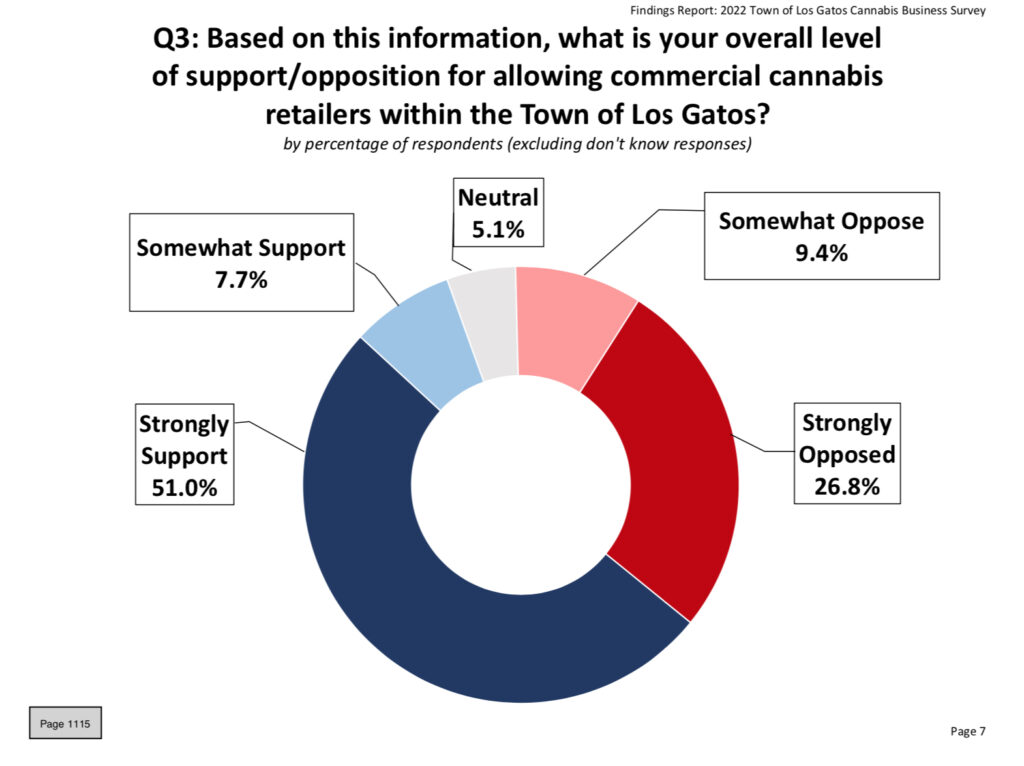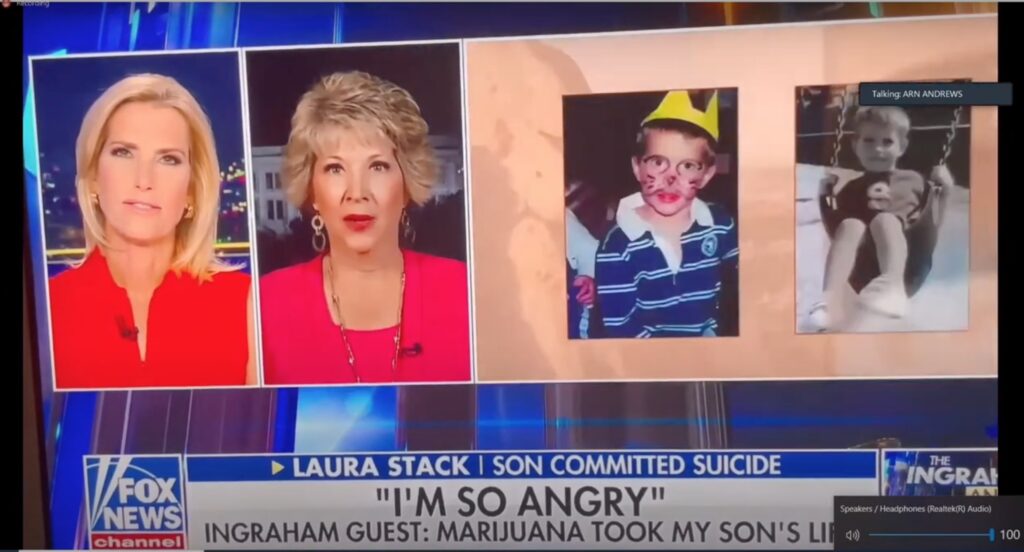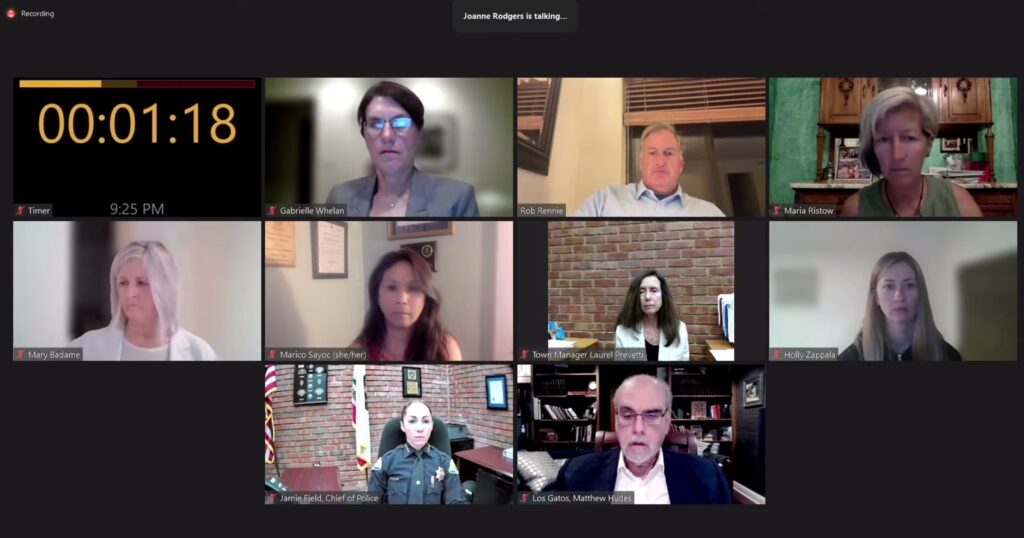After months of community meetings, formal and informal studies, and tens of thousands of dollars invested, Council chose to walk away from paving the way for cannabis sales within Los Gatos’ borders, Tuesday.
It made the decision at its regularly-scheduled meeting on the recommendation of the police chief, and the Town Manager, who worried new taxes wouldn’t exceed additional regulatory and enforcement costs—and might create other problems.
But it went against the urging of the Los Gatos Chamber of Commerce and despite a late-breaking analysis that suggested 51% of locals “strongly support” the move.
The Kansas-based ETC Institute’s research also showed many residents also strongly oppose the idea.
Multiple Council members called the data confusing, considering another question showed 53% somehow also “strongly opposed” allowing “commercial cannabis businesses.”

When asked about the seemingly contradictory results, Esther Campbell of the ETC Institute said as residents gained a better understanding of what commercial cannabis could mean throughout the survey process, they appeared to become more supportive.
After marijuana was legalized for recreational use in California, Los Gatos residents passed a referendum preventing marijuana sales here, and are now in the company of more than 60% of cities and counties that have taken a similar approach.
But with Los Gatos facing deficits for years to come, and as some sectors struggle to rebound from the pandemic, Council decided to see if it might be a good time to allow pot shops.
Meanwhile, State politicians have been considering initiatives that would force at least some cannabis sales, regardless.
During the public hearing Tuesday, residents spoke passionately both in support and against.
Diana Pleasant played a Fox News clip of Laura Ingraham, the host of an opinion show, interviewing a mother who attributes her son’s suicide to marijuana use.

Tom Woods, who lives in the Santa Cruz Mountains, said the patients his wife sees at a county rehab facility are most-often suffering from addiction to alcohol and opioids—legal drugs—not marijuana.
Margaret Smith implored Council to take staff’s denial recommendation seriously.
“If it’s such a great business, then why is it that we want to put it someplace out of mind and out of sight?” she said of suggested locations away from downtown. “It almost seems hypocritical to me.”
Chris Lane, the head marketer at cannabis retailer Airfield Supply Co., explained that in San Jose businesses shoulder regulatory costs like fingerprinting staff and have airport-level security measures to prevent underage sales.
“If you can sneak into America, yes, maybe you might be able to sneak into a dispensary,” he said.
Councilmember Matthew Hudes said he thinks a consultant’s report projected unrealistic customer and revenue figures, and asked Lane for his opinion.
Lane said they look “completely viable,” adding Airfield already sells $1.2 million-worth of cannabis to more than 2,000 Los Gatos customers annually, adding that could grow to 5,000 if they opened a store in town.
The effort to provide a legal way for Los Gatans to buy cannabis died as Council members failed to come up with a 4/5ths majority about a potential ballot initiative.
Such a majority wouldn’t have been required until a final decision about the referendum, but staff requested it to avoid wasting time on something that wouldn’t eventually pass.
Initially, most of the elected officials appeared supportive of a measure that would at least prepare Los Gatos to financially benefit from any State requirement to permit cannabis sales—totally, or in part—everywhere in California.
But Hudes said he’d refuse to support a ballot measure that didn’t also ask residents whether they want local marijuana operations or not.
His effort to put forward a compound question—that would have only allowed taxing cannabis if voters also said they supported commercial operations—didn’t find any takers.

Then, Vice Mayor Maria Ristow tried a motion to ask staff to come up with options for a ballot measure that would capture revenue if allowing marijuana sales was required.
She said Hudes’ motion had been the deceptive one, because residents might think they’re voting to support local cannabis sales.
Councilmember Marico Sayoc seconded Ristow’s motion, but then voted against it, and it failed 4-1.
It was already the second night in a row that the Council was up past 11pm discussing Town business—after Round 1 of General Plan deliberations the night before.
Instead of continuing to work toward a solution that at least four Council members could support, they decided to move on.
But unlike with the electric scooter pilot program, which Council voted unanimously to deny as part of its consent calendar earlier in the meeting, there was no explicit vote to kibosh commercial cannabis plans.
Instead, staff explained, the exercise of developing cannabis revenue was essentially being put off to another day—for if Los Gatos decides it wants to try again.










